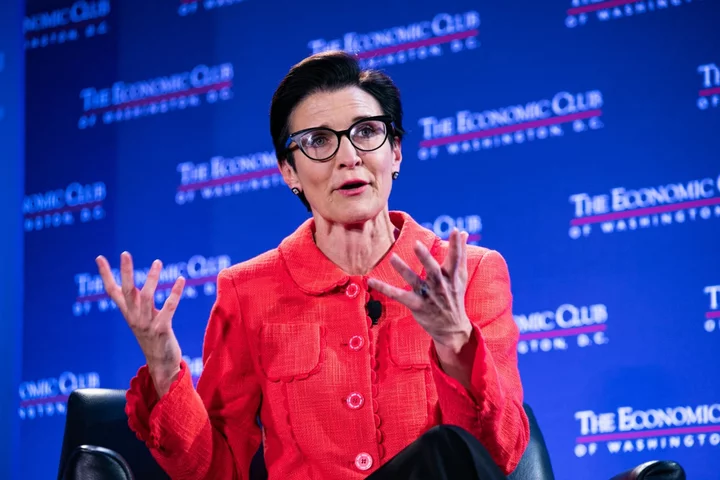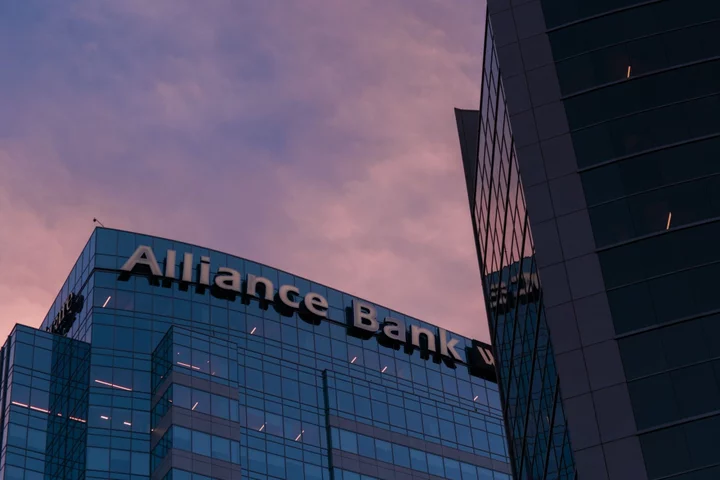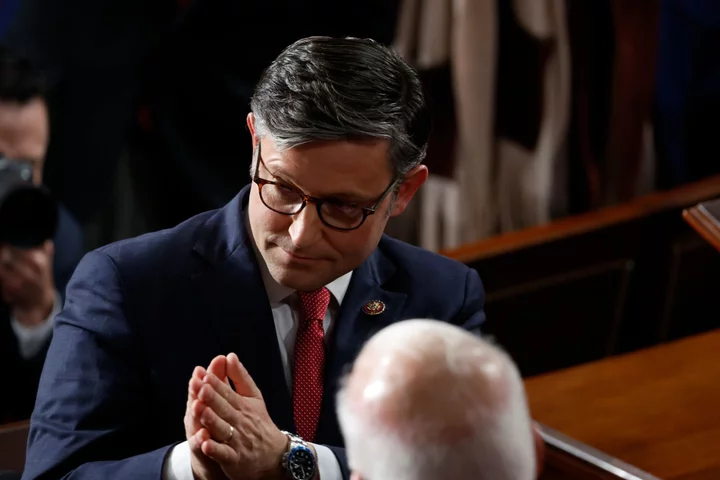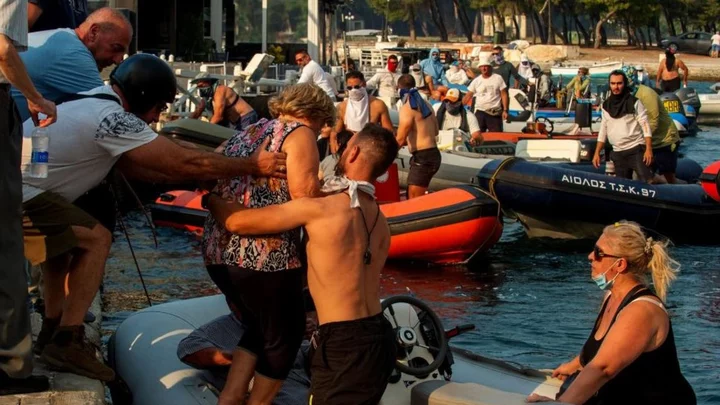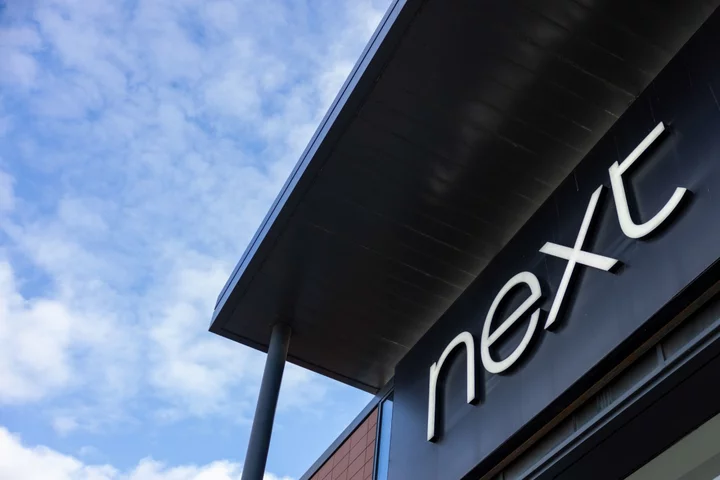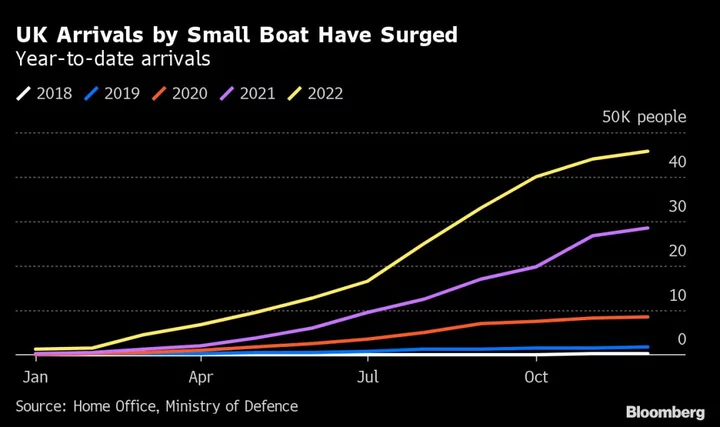Citigroup Inc. plans to sell shares of its Banamex unit in an initial public offering, ending talks for a potential $7 billion divestiture to a local buyer in a deal that faced complications from Mexico’s president.
The US bank had been close to a deal to sell most of Banamex’s retail operations to Grupo Mexico SAB for roughly $7 billion.
Lea la nota en español.
Although several bidders had been vying for Banamex over the past year, the pool of potential buyers dwindled after Mexican President Andres Manuel Lopez Obrador placed conditions on any deal, including a requirement that Mexican capital back the transaction and there be no massive layoffs. He also wanted to preserve the historically important art collection that Banamex owns.
Banco Santander SA and Mexico’s biggest locally owned bank, Grupo Financiero Banorte, dropped out in the wake of the president’s demands. With only Larrea left in the bidding, AMLO, as the Mexican president is known, last week seized control of a railroad line operated by Grupo Mexico. While Lopez Obrador said that decision didn’t affect his support for the Banamex deal, it added to tension between the president and Larrea, Grupo Mexico’s controlling shareholder.
Citigroup’s IPO decision is an opportunity for the Mexican government to seek a partnership in the bank, AMLO said in his daily morning presser, adding that the country could spend as much as $3 billion on a stake in Banamex. He added that he would reach out to the finance minister to start talks on the possibility of a private-public partnership with Citi.
Read more: AMLO Says Mexico Could Offer $3 Billion For a Stake in Banamex
Grupo Mexico declined to comment.
The decision allows the US bank to restart stock buybacks this quarter, the New York-based company said in a statement Wednesday. Citigroup had been holding off on share repurchases because the sale, which could have fetched at least $7 billion, was expected to temporarily hurt capital levels.
“We concluded the optimal path to maximizing the value of Banamex for our shareholders and advancing our goal to simplify our firm is to pivot from our dual-path approach to focus solely on an IPO of the business,” Chief Executive Officer Jane Fraser said in the statement.
Ditching Banamex is part of Fraser’s broader retreat from global consumer banking in order to focus on more profitable businesses. Citigroup is also finishing up efforts to dispose of 13 other retail units across Asia and Europe.
Shares of Citigroup fell 2.9% at 12:09 p.m. in New York. Grupo Mexico shares rose as much as 7.5% in Mexico City in their biggest intraday jump since Jan. 20. Shareholders had been skeptical about the mining and railroad company’s foray into banking.
The US company still plans to offer institutional and private-banking services in Mexico, and will continue to separate those offerings from its retail products in coming quarters. It expects that work to be completed in the second half of next year, allowing an IPO to take place in 2025, according to the statement.
The business up for a public offering will retain the Banco Nacional de Mexico brand, known locally as Banamex. The division has roughly 12.7 million retail customers, 6,600 commercial clients and 10 million pension-fund customers.
The offering will include Banamex’s 38,000 staffers as well as the unit’s credit-card offerings, retail-banking products, consumer loans and residential-mortgage loans, according to Citigroup. It will also include the division’s annuities, pension assets, deposits and commercial-banking products.
Banamex’s art collection — one of the largest collections of Mexican art in the world — will also remain part of the new company.
“This decision demonstrates our commitment to choose the best outcome for our shareholders and allows us to resume a modest level of share buybacks this quarter,” Chief Financial Officer Mark Mason said in the statement. “Given the uncertainty regarding regulatory capital requirements, we will continue to assess buybacks on a quarter-by-quarter basis.”
Citigroup plans to report Banamex’s results as part of the firm’s continuing operations until its ownership in the company falls below a 50% voting interest, according to the statement.
Calls to Divest
Citigroup agreed in 2001 to pay $12.5 billion for what was then known as Grupo Financiero Banamex-Accival, Mexico’s second-largest bank at the time. The division eventually became the US bank’s largest branch network in the world and one of its most profitable divisions.
But the company still faced calls to divest the unit, which has been involved in a series of scandals. In one case, Banamex said it was defrauded out of hundreds of millions of dollars on loans it made to the Mexican oil-services provider Oceanografia SA. Years of regulatory scrutiny followed, and Citigroup overhauled its lending practices in the country. It resolved a Securities and Exchange Commission investigation into the matter in 2018.
In 2017, Citigroup admitted to criminal violations and agreed to pay $97 million to resolve an investigation into the US unit of Banamex following a Justice Department probe into the division’s anti-money-laundering controls and due diligence.
Citigroup still stood by by the operation, which it saw as a key source of profits. Even when it announced in 2021 that it would sell more than a dozen retail businesses abroad, it excluded Mexico.
“Mexico is a scaled franchise,” Fraser said that year. “When I compare Mexico to our Asian consumer franchise, they really benefit from the scale.”
But by last year, that thinking had changed as Fraser continued with her turnaround strategy of focusing on steadier streams of revenue in businesses such as wealth management and treasury services.
In 2021, the final year for which Citigroup broke out results for the unit, revenue had dwindled to $4.25 billion, less than half what it was a decade earlier.
“Citi has operated in Mexico for over a century, and we will further invest and grow our industry-leading institutional franchise in this critical global hub,” Fraser said in the statement Wednesday.
(Updates share prices in 10th paragraph.)

